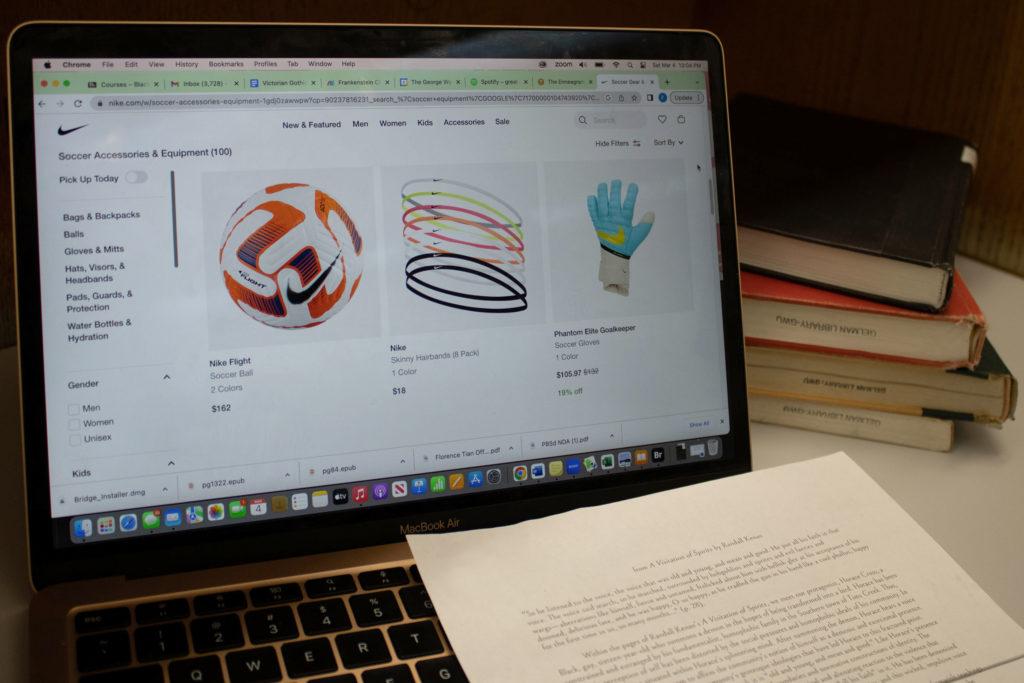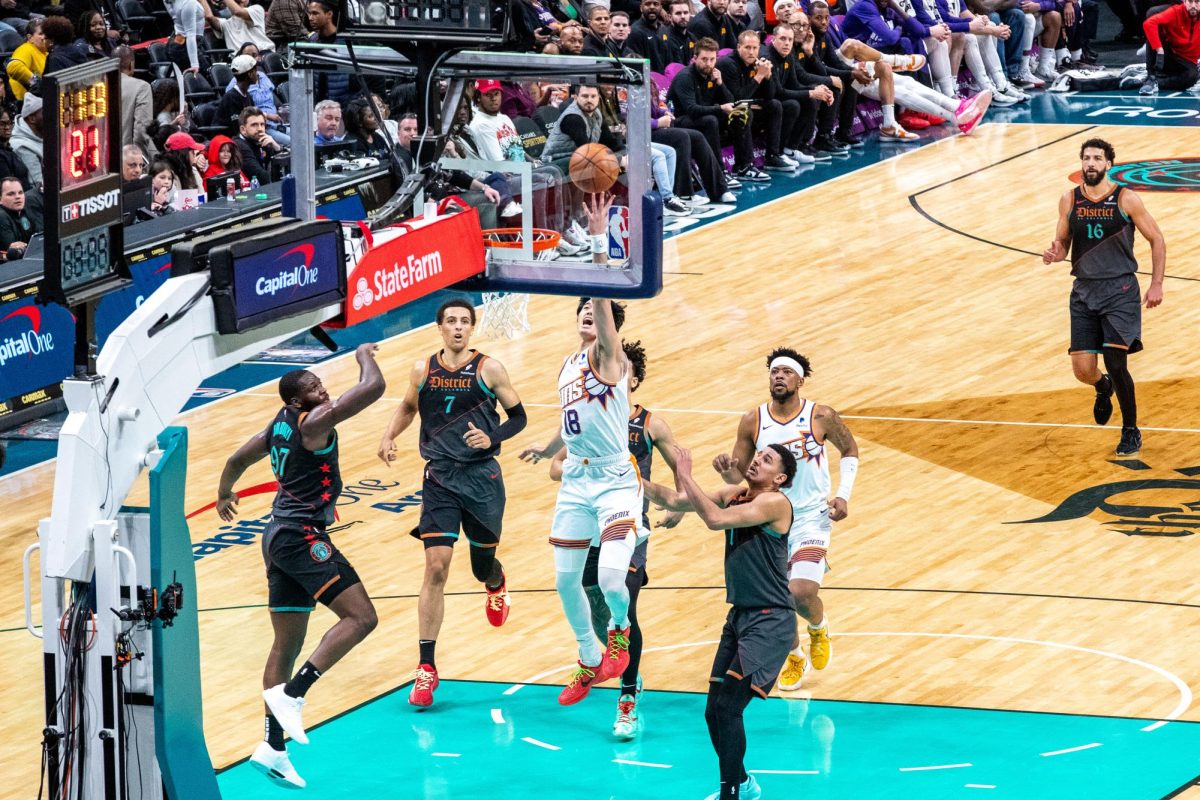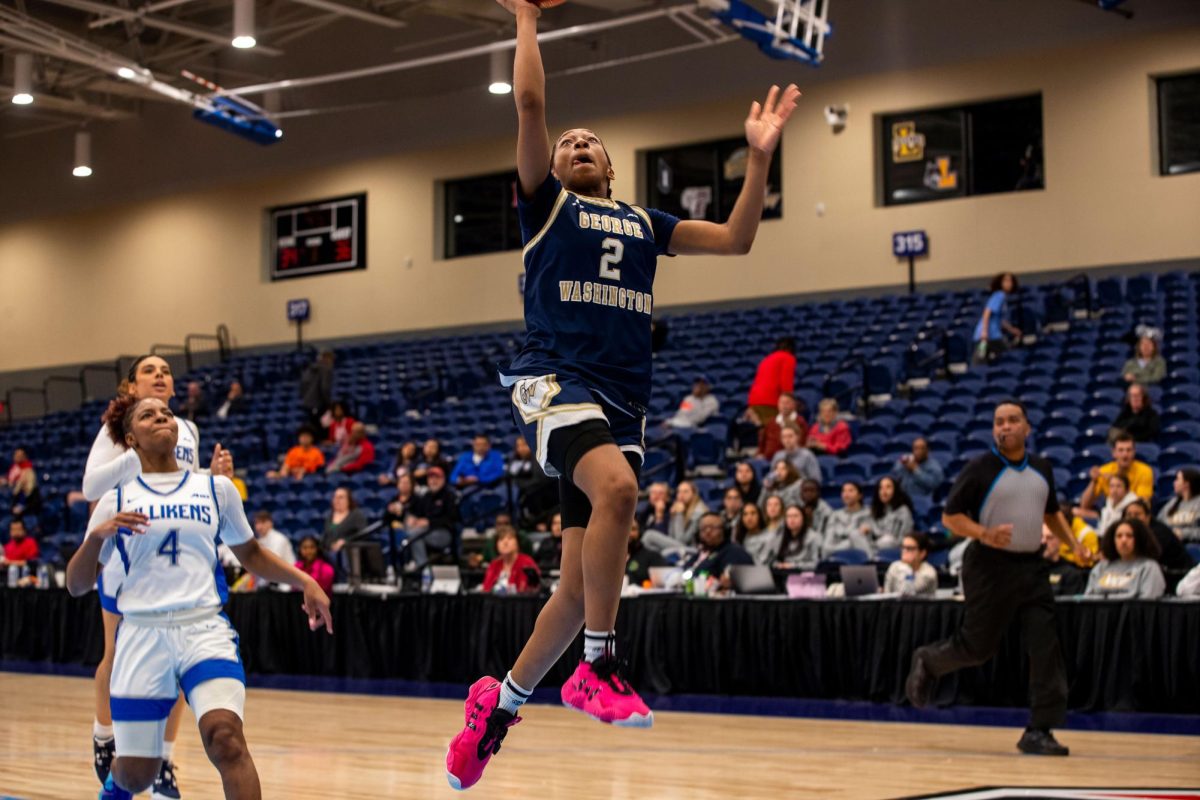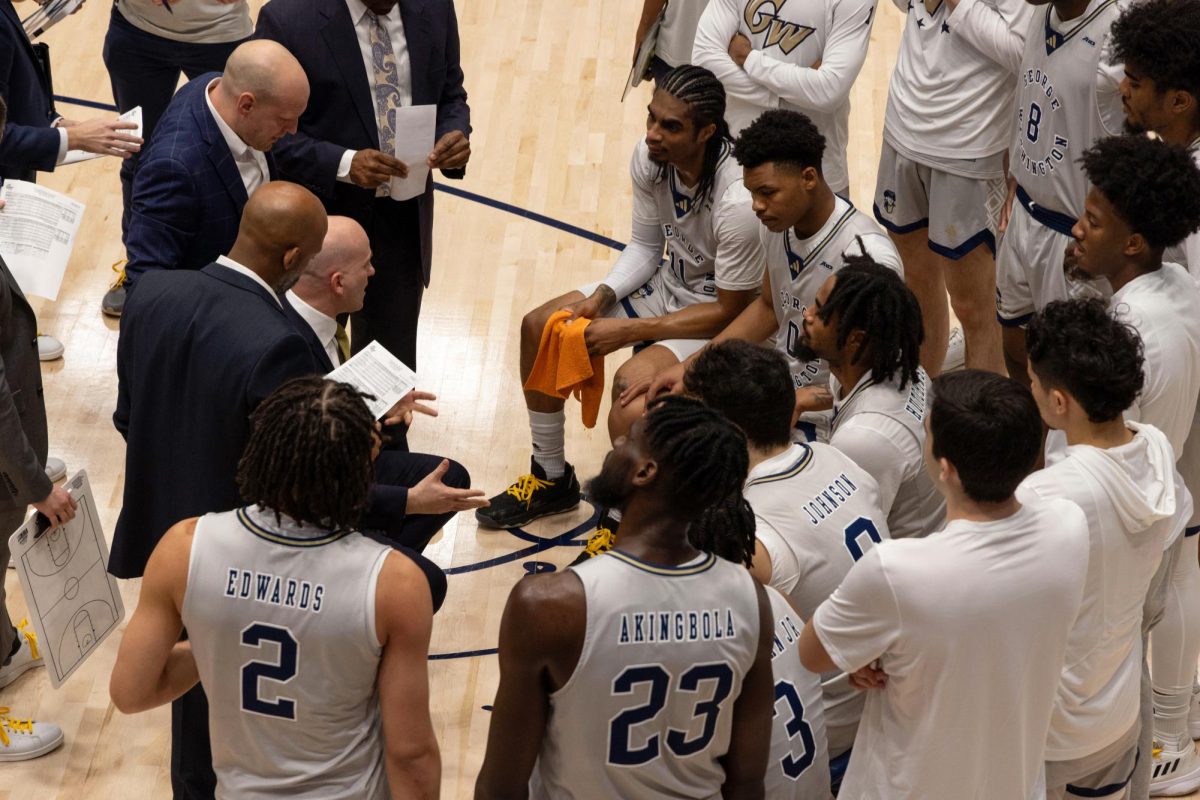Student-athletes’ GPAs plateaued in 2022 following a momentary surge that coincided with the onset of remote learning during COVID-19, according to data released by the athletic department last month.
Multiple semesters of department data show student-athletes’ average GPA rose to 3.37 this fall from 3.35 last spring – a slight uptick from the nearly two-year low in fall 2021. Average GPA among student-athletes skyrocketed during the early stages of COVID – jumping from 3.22 during the final pre-pandemic semester to three straight semesters of a 3.50 GPA or higher when the pandemic set into effect.
Experts attributed the overall post-pandemic GPA decline to the readjustment from online to in-person learning, but they said limited data and sample sizes constrain broader takeaways from these academic trends associated with the pandemic.
[gwh_image id=”1182597″ credit=”Nicholas Anastacio | Graphics Editor” align=”none” size=”embedded-img”][/gwh_image]
Tennis led all sports with a cumulative GPA of 3.58, with women’s swimming and diving, women’s soccer and women’s track tied for the second-highest 3.51 GPA. Softball clocked in at a close third with a 3.49 average.
Nearly 75 percent of student-athletes made the Athletics’ Dean’s List, with 299 out of nearly 400 student-athletes recording a GPA of 3.0 or higher.
Among the 30 athletes with a perfect GPA in the fall, five logged a 4.0 in both 2022 semesters – senior cross country and track runner Patrick Castellano, senior swimmer Brendan Conley, junior volleyball player Markella Lanara, junior woman’s gymnast Payton Lynch and junior soccer player Tim Neumann.
Student-athletes saw dramatic increases in their academic performance during the pandemic due to the benefits and convenience of remote learning, like ample time to study, a relaxed schedule and online testing.
The extra downtime during the pandemic allowed many student-athletes a reprieve from their packed schedules of practice, class and training, giving them more time to devote to academics. As the pandemic hit in the spring of 2020 and instruction moved online, the Atlantic 10 scrapped its spring seasons along with championship competitions for winter sports.
Nellie Drew, a professor of practice in sports law and the director of the University of Buffalo Center for the Advancement of Sport, said transitioning back from the more relaxed distance learning method may have posed challenges for some students depending on their learning styles.
“I can tell you from personal experience working with some students, some of those who had bad challenges in typical learning environments may actually have done better in the pandemic,” Drew said. “And then when they transition back into the normal environment, that may have lost some of the coping skills and the mechanisms they had developed prior to that.”
Student-athletes have often experienced these transition struggles as they juggle academics and athletics when returning to in-person education.
“There are a bunch of factors that go into that,” Drew said. “People who may have had borderline anxiety disorders may have more mental health challenges now, in particular, returning to in-person class. So I’m not necessarily certain that these are particular to the athletic community.”
The Sports Science Institute conducted a study in the NCAA that shows about 85 percent of certified athletic trainers think anxiety disorders are a current issue with student-athletes due to increases in performance anxiety during the pandemic. The institute also found that student-athletes are less likely than nonathletes to report and seek treatment for their mental health but were unsure if it was due to a decreased need, with 44 percent of college students reporting mental health concerns.
John Callaghan, an associate professor emeritus of biological sciences at the University of Southern California, said coaches also have a significant role in shaping the academic performance of their students. He said the incentives to athletic success, especially for coaches, can often overshadow the importance of academics.
He said coaches and their staff can help balance the priorities of their student-athletes between the classroom and practices, training and competition.
“A complete balance is essential, but it is so very often more than difficult to achieve as coaches, particularly in the major sports are held in such high esteem,” said Callaghan. “And with their financial rewards, success is well nigh mandatory, with the athlete often the one who pays the price academically.”
Many universities, including GW, provide academic support for their student-athletes, including tutoring and seminars which teach skills that can make or break a student’s academic performance.
The Educational Support Services Unit based in the Carbonell Center offers free small group and individual tutoring to all athletes. The services unit employs six full-time employees who provide constant academic support and 30 to 40 part-time tutors.
“Cutting down on wasting time and studying smarter as opposed to study longer is key,” Peter Lemon, the director of the Exercise Nutrition Research Lab at Western University, Ontario, said. “And athletes learn this early on, which explains why they go on to be successful in whatever area they pursue following graduation because time management is a critical skill for all careers.”








